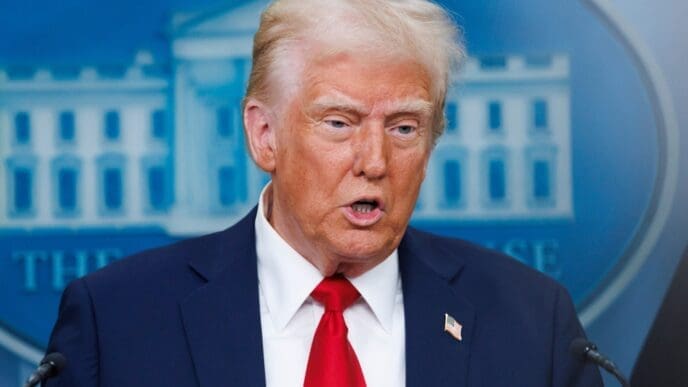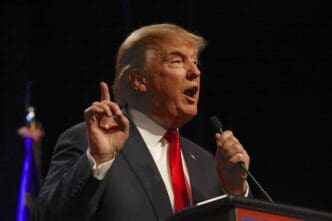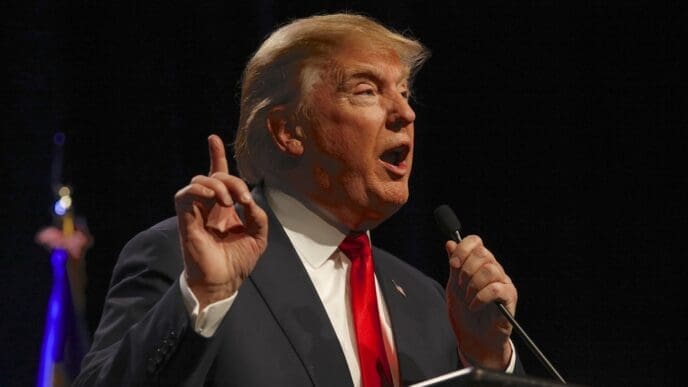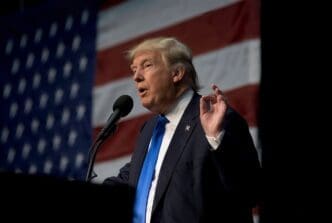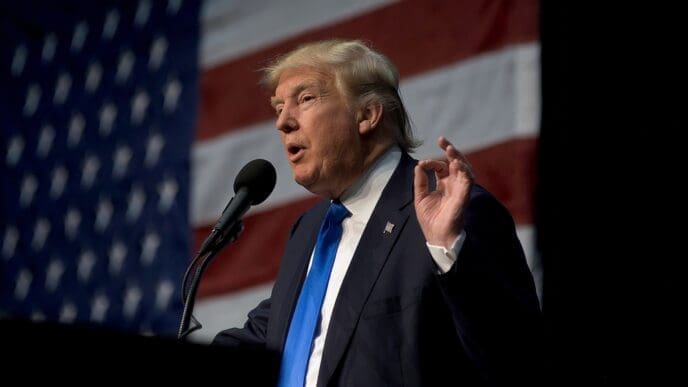Executive Summary
The Story So Far
Why This Matters
Who Thinks What?
President Donald Trump’s administration is intensifying its efforts to influence the Federal Reserve, notably by seeking to remove Fed official Lisa Cook. This campaign, which analysts suggest aims to reshape the central bank’s stance on interest rates, has prompted concerns among some experts regarding the institution’s traditional independence, yet Wall Street has largely maintained a muted reaction.
Trump Administration’s Actions at the Fed
The market’s calm response comes even as President Trump announced he had fired Lisa Cook, a top Fed official. Cook’s attorney has indicated that she plans to file a lawsuit challenging her dismissal, with Cook herself stating she will not be pressured into resigning.
While accusations of mortgage fraud against Cook have been made, which she has not been charged for, analysts suggest the move is part of a broader strategy. President Trump, who lacks the legal authority to directly fire Fed Chair Jerome Powell, could nominate a fourth rate-cutting ally to fill one of the seven Fed governor seats if Cook were removed.
This potential shift would not immediately grant control over the federal funds rate but could provide sway over the central bank’s budget and the selection of 12 regional Fed presidents, who are key members of the rate-setting committee. Peter Boockvar, chief investment officer at One Point BFG Wealth Partners, noted that Cook was likely targeted to remake the Fed with individuals inclined to lower interest rates.
Wall Street’s Muted Response
Despite these developments, financial markets have shown little volatility. Stocks and bonds barely reacted to the news of Cook’s attempted dismissal, with equities remaining flat and bond yields seeing only a slight increase. Markets continue to trade near record highs.
Some analysts attribute Wall Street’s apparent complacency to a history of profitable bets on the idea that President Trump will eventually moderate his stance. Daniel Alpert, managing partner of Westwood Capital, also suggested that active government involvement in the market, including the allocation of government funds, is viewed as a positive for equities.
However, Alex Jacquez, chief of policy and advocacy at Groundwork Collaborative, described the situation as a “boiling-the-frog moment,” questioning what event would serve as a tipping point for market concern. Financial Times columnist Katie Martin observed that investors appear to be “sweating the small stuff and missing the existential threat of US institutional destruction,” prioritizing short-term gains like corporate earnings and anticipated interest rate cuts.
Criticism of Financial Industry’s Silence
The lack of vocal opposition from corporate leaders and business lobbies has also drawn criticism. Dennis Kelleher, co-founder and CEO of Better Markets, described the silence of Wall Street CEOs as “unconscionable.”
Kelleher argued that these financial leaders understand the potential long-term damage of politicizing monetary policy, warning of future inflation and economic turmoil if the trend continues.
Ultimately, the ongoing efforts by the Trump administration to influence the Federal Reserve’s composition and policy direction are unfolding against a backdrop of a largely unfazed Wall Street. While some experts caution about the implications for the central bank’s independence and the broader economy, investors appear to be prioritizing immediate market performance and potential interest rate adjustments.



